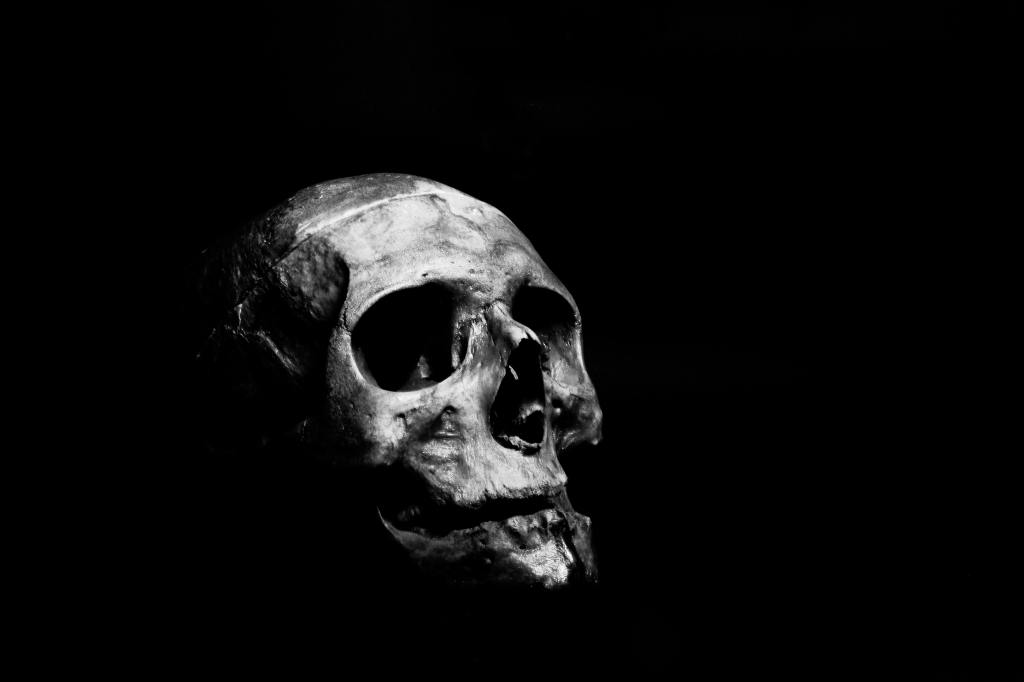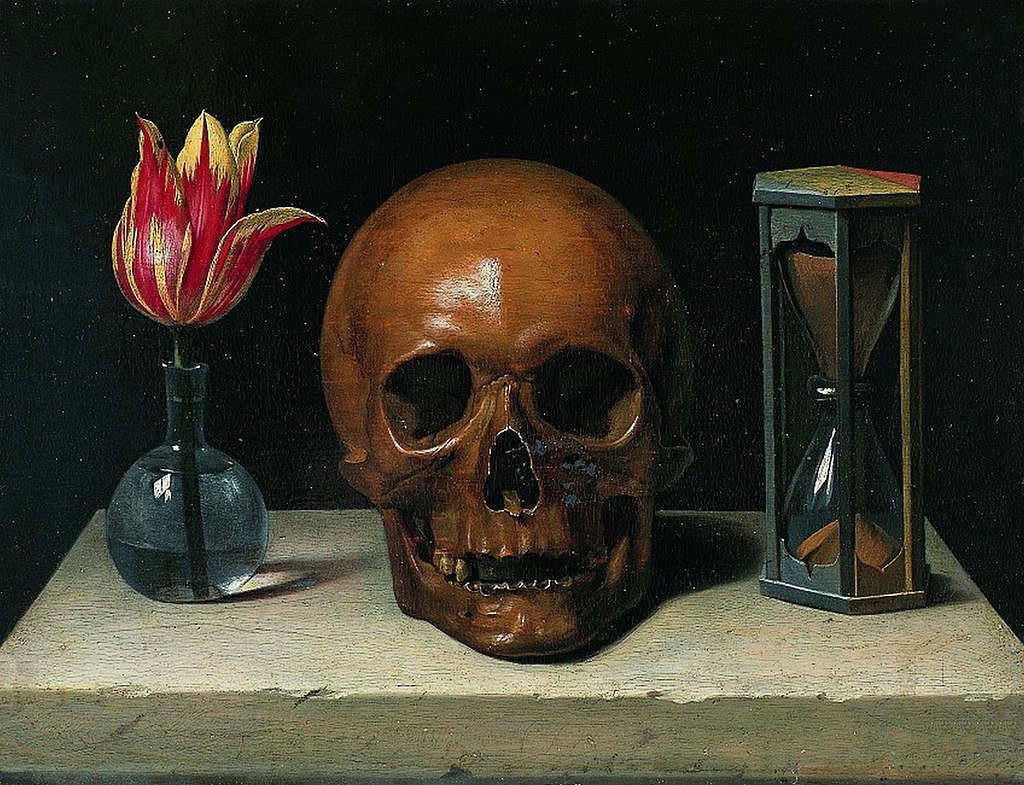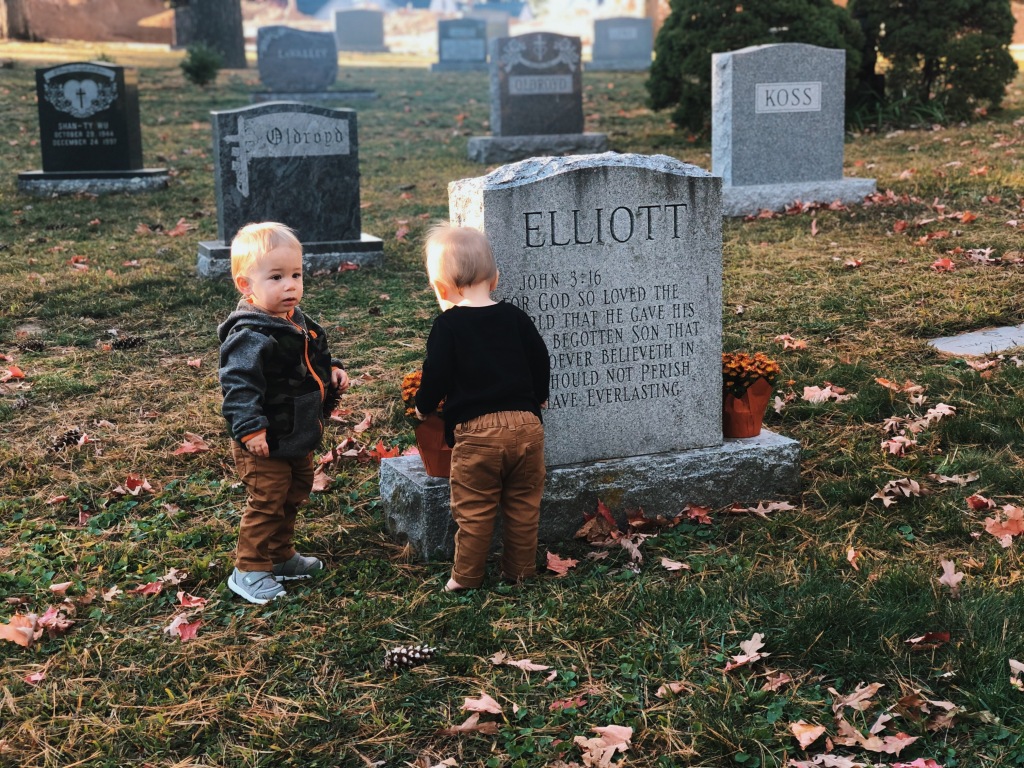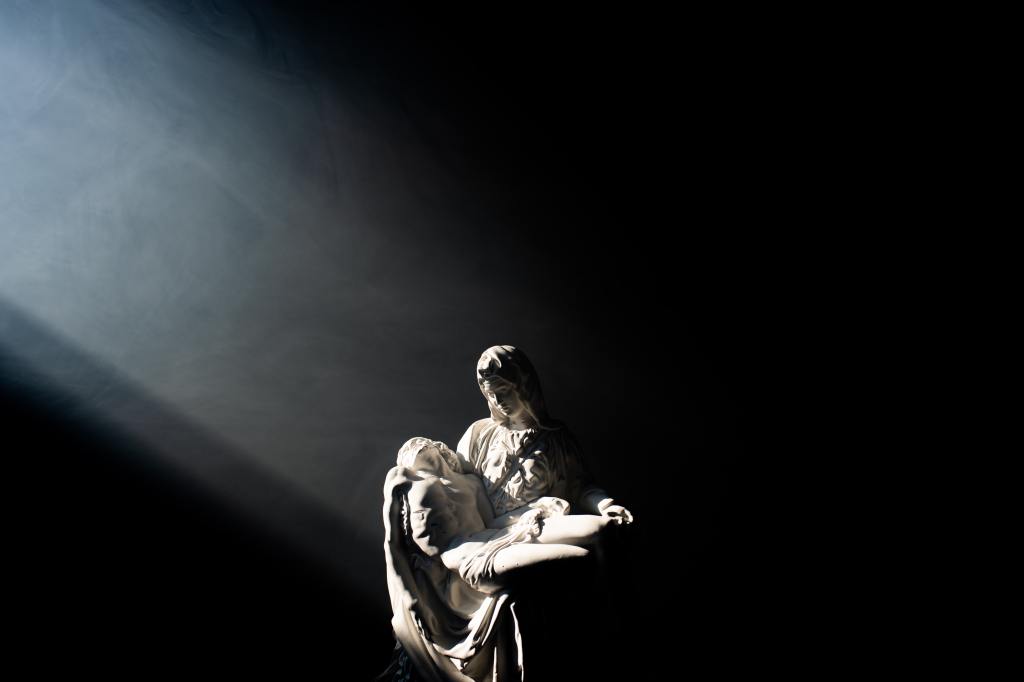Good Friday is the yearly remembrance of Jesus’ Christ’s betrayal, trial, suffering, crucifixion, death, and burial. Christians across all times, cultures, and geographies have communally and reverentially worshiped Jesus as the author of salvation in his sacrificial act. Over the last 100 years, Good Friday has fallen on April 15th only four times. And, this is the first year in my lifetime that Good Friday is being observed on April 15th.
Why is this important you might ask?
You might be asking yourself, “is this essay going to be about how Good Friday relates to taxes and Tax Day?” Well, the answer is no, but also kind of yes.
You probably know the phrase, “Nothing is certain but death & taxes.” It originated with the English Writer Daniel Defoe, and was popularized by Benjamin Franklin when he wrote in a letter to a friend, “Our new Constitution is now established, and has an appearance that promises permanency; but in this world nothing can be said to be certain, except death and taxes.” Encapsulated in this quote is the thought that humanity cannot run away from certain things, certain permanent experiences that continue from generation to generation.
Governments have existed for thousands of years and have taxed their people, from Babylon to Egypt, from Rome to the United States. Death equally and more powerfully has always existed. Death is the great equalizer. Whether you are rich or poor, young or old, sick or healthy, powerful or ordinary, you will die. No human, who has ever lived, has not tasted death. But, in a loose sense, death is also a kind of tax.
Let me explain this a little bit more.
Our word “tax” comes from the Latin word “taxare,” which originally meant to formally disapprove of someone. That is obviously not how we use the word today. But, the word “taxare” also had connections to touching, grabbing, inspecting, which is how the French eventually changed the meaning of the root word “tax” and how we got our english version. They saw that “taxing” was the government “grabbing” or “seizing” an assessed price from the people. So, a tax is the governmental authorities in power “gripping” “grabbing” or “seizing” the goods they assess as necessary compensation.
So, how is death a tax? How does death relate to humans having goods seized by an authority?
Well, in the Christian worldview, humans were created as God’s image bearers. We have a unique dignity, value, and worth because God bestowed his image upon us at our creation [Genesis 1:27]. That is why humans are noticeably different from animals, plants, and the rest of creation [Psalm 8]. We have minds, rationality, creativity, morality, and more that all points to a unique and exalted spiritual reality and existence. The same way coins and currency have images of their country’s leaders stamped on them, humans have God’s image stamped on us.
So, in the Christian story, when humanity sinned against our good God; there were consequences. God’s good creation, all of it, was cursed [Genesis 3]. We see this everyday. Work is hard. People are mean. Wars are fought. People die. There is sin, evil, and death everywhere, and it can be experienced in a small lie or an international war, in gossip or in murder. So, God put a “tax” on mankind. Death. God, as the supreme authority, put a price on our disobedience and evil. Humans all die. God reclaims his image back unto himself. And, like I said earlier, no amount of money or power can change this reality.
The Psalmist even exclaims this truth in Psalm 49 when he writes:
Why should I fear in times of trouble, when the iniquity of those who cheat me surrounds me, those who trust in their wealth and boast of the abundance of their riches? Truly no man can ransom another, or give to God the price of his life, for the ransom of their life is costly and can never suffice, that he should live on forever and never see the pit. [vs 5-9]
No man or woman can avoid this tax. No amount of money, no position of power, no new technology can save a human from the grip of death, the seizing of his life before God. It is appointed unto man once to die, and then our judgment [Hebrews 9:27]. You can’t hide your life from God, how rich people hide their money in Costa Rica or the Caymans. That’s not how it works.
So why am I writing about Good Friday, Tax Day, taxes, and Death?
Well, April 15th represents all of those experiences for me this year. You see, April 15th is especially hard for me, not because it is Tax Day (I normally do my taxes in February or March), but because it’s the anniversary of my Dad’s heart attack and subsequent death. My dad’s death negatively affected me more than any other event in my life. And, every year I contemplate my dad’s death, it’s affects on my life, my family’s life, death in general, and death in the Christian story.
One thing that my Dad’s death has taught me over and over again, is that you need to face death. You need to contemplate your death. You need to live a life knowing that you will die someday. That your taxes will come due, and God will call you home. Avoiding thinking about death and the great questions of life is no way to live. Distracting oneself with entertainment, riches, popularity, and the such can only help for so long. Sooner or later you need to confront death face to face. I find it interesting that often people dread the IRS more than thinking about their own mortality in life.
But, I can tell you that when I faced death, when I asked the question, can I offer anything to escape death? CanI pay the debt owed to God? Can I pay the great tax? I was met with only silence, anxiety, and fear.
And, then I answered: no!
There is nothing I can offer.
But in that place of darkness and despair, and complete honesty, a little light started flickering. And, that light was Jesus Christ. The Psalm I quoted earlier stated, “Truly no man can ransom another, or give to God the price of his life, for the ransom of their life is costly and can never suffice, that he should live on forever and never see the pit.” But the story of Jesus Christ is exactly that. Jesus Christ is where heaven met earth, where God became man, so that man might be reunited with God. And this is what is so comforting as a Christian. The Christian story, my story, my father’s story is Jesus’ Story, and he pays the price.
“No man can ransom another,” but God can. God can ransom humanity from the grave. The God-man Jesus can pay the tax that was due. He can heal our broken image. He can make the payment to God for us. And, so he did on the cross. He died the death that we deserved so that we might live in the light and life of God himself.
No other religion, no scientific phenomenon has ever explained the world this way. No other religion has God descending to mankind to save us in his mercy and grace. And no scientific narrative, experiment, or technology will cause mankind to become like gods and avoid death. So, I put my faith in the one who can make the payment because he was a human like me, and the one who can satisfy the payment to God as God himself. I put my faith in the God-man, Jesus Christ. My only hope in life and death.
Ultimately this is a special year for me. Good Friday couldn’t come at a better time; it couldn’t be on a better day of the year for me. Because, ultimately today I am focused on the death of Jesus Christ, my savior. And, as I focus on Christ’s death; his payment to purchase me; to pay the tax so to say, I cannot help but be filled with hope.
Humanity continues on. History continues. My dad died 24 years ago. My taxes are due today. Yet still I remember my savior. For he has paid my debt, he seized death itself. So, even though I will die, I will face it with hope and assurance, knowing that death is no longer a tax for me, but rather a down payment funded with the blood of Jesus Christ. A down payment that I will gladly pay to be reunited with my savior, my father, and those who are the beloved of God.
Amen.







Leave a comment